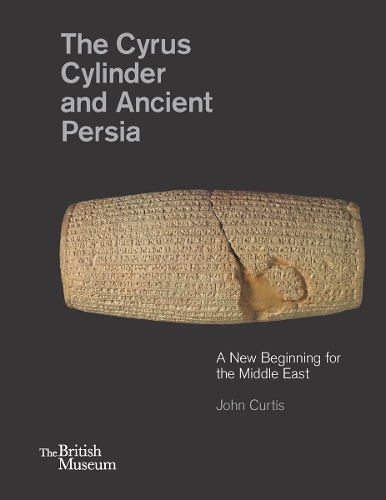
The Cyrus Cylinder and Ancient Persia: A New Beginning for the Middle East
(Hardback)
Publishing Details
The Cyrus Cylinder and Ancient Persia: A New Beginning for the Middle East
By (Author) John Curtis
British Museum Press
British Museum Press
20th November 2013
United Kingdom
Classifications
General
Non Fiction
Ancient history
Middle Eastern history
935.05
Physical Properties
Hardback
144
Width 219mm, Height 276mm
1000g
Description
The Cyrus Cylinder is one of the most famous objects to have survived from the ancient world. Inscribed in Babylonian cuneiform on the orders of the Persian King Cyrus the Great (559530BC) after he captured Babylon, it is often referred to as the first bill of human rights, as it appears to permit freedom of worship throughout the Persian Empire and to allow deported people to return to their homelands. It is a valued object by people all around the world as a symbol of tolerance and respect for different peoples and different faiths, which is why a copy of the cylinder is on display in the United Nations building in New York. This lavishly illustrated catalogue is published to complement the first ever tour of the object to the United States, along with sixteen other objects from the British Museum's world-famous collection. Including a new authoritative translation of the Cyrus Cylinder by Irving Finkel, The Cyrus Cylinder and Ancient Persia offers a fascinating introduction into a period of great social and political change in the Ancient Near East.. 'You could almost say that the Cyrus Cylinder is a history of the Middle East in one object and it is a link to a past which we all share and to a key moment in history that has shaped the world around us.' - Neil MacGregor, Director of the British Museum
Reviews
"Buy the book, and then look at the objects - now back in the British Museum."
Author Bio
John Curtis is Keeper of Special Middle East Projects at the British Museum and a Fellow of the British Academy. His personal research interests focus on the archaeology and history of Iraq and Iran, c.1000-330 BC. He is the author of a number of books including An Examination of Late Assyrian Metalwork, Ancient Persia, The Oxus Treasure, Forgotten Empire (with Nigel Tallis) and The Horse: From Arabia to Royal Ascot (with Nigel Tallis). Irving Finkel, philologist and Assyriologist, is a spellbinding storyteller and a familiar figure in academic and literary circles. He is the Assistant Keeper of Ancient Mesopotamian script, languages and cultures in the Department of the Middle East in the British Museum, where he reads cuneiform inscriptions on tablets of clay from ancient Mesopotamia. An expert on the history of board games, he is also the author of many children's books as well as the best-selling The Ark Before Noah, which recounts his discovery of a cuneiform tablet that contained a Flood narrative far older than the story of Noah and which led to the recreation of the ark for a 2014 TV documentary.
